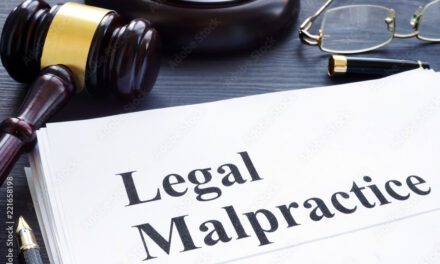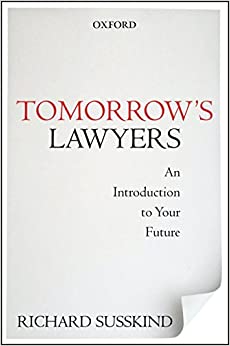LAWYER’S BAD
FAITH SANCTIONED
FAITH SANCTIONED
Michael Sean
Quinn*
Quinn*
In the case of Egan v. Pineda #15-2011 (7th Cir. December 23, 2015),
the plaintiff—her lawyer (“L”)—not she–was the appellant, accused the appellee
and his business of sexual discrimination by creating a hostile work
environment. The lengthy complaint made repeated accusations of sexual assault
of various kinds. In her deposition, the plaintiff admitted that none of these
claims were true. Here case was
dismissed; that was not contested on appeal.
the plaintiff—her lawyer (“L”)—not she–was the appellant, accused the appellee
and his business of sexual discrimination by creating a hostile work
environment. The lengthy complaint made repeated accusations of sexual assault
of various kinds. In her deposition, the plaintiff admitted that none of these
claims were true. Here case was
dismissed; that was not contested on appeal.
The issue on appeal was a $5000.00
sanction the district judge has imposed upon L.
For the less knowledgeable, it is worth noting that this is a relatively
small sanction for this sort of outrageous error.
sanction the district judge has imposed upon L.
For the less knowledgeable, it is worth noting that this is a relatively
small sanction for this sort of outrageous error.
At two different hearings regarding
the imposition of the sanction the district judge asked L how such a thing
could have happen. L gave several
“explanations,” including editing error and poor proofreading.
the imposition of the sanction the district judge asked L how such a thing
could have happen. L gave several
“explanations,” including editing error and poor proofreading.
It is reasonable to speculate that
neither the district judge nor the circuit court judge, Posner, J., believed L.
Judge described his statements as “pathetic,” and this observation is too kind.
Judge Posner’s opinions is based upon
federal law authorizing judges to sanction attorneys who perform acts in
litigation “in bad faith,” where it is understood that this phrase refers at
least to recklessly making frivolous claims. Chambers v. NASCO, 501 U.S. 32, 45-46 (1991), Johnson v. Cherry, 422 F.3d 540, 548-49 (7th Cir. 2005), and Mach
v. Will County Sheriff, 580 F.3d 495, 501 (7th Cir. 2009).
neither the district judge nor the circuit court judge, Posner, J., believed L.
Judge described his statements as “pathetic,” and this observation is too kind.
Judge Posner’s opinions is based upon
federal law authorizing judges to sanction attorneys who perform acts in
litigation “in bad faith,” where it is understood that this phrase refers at
least to recklessly making frivolous claims. Chambers v. NASCO, 501 U.S. 32, 45-46 (1991), Johnson v. Cherry, 422 F.3d 540, 548-49 (7th Cir. 2005), and Mach
v. Will County Sheriff, 580 F.3d 495, 501 (7th Cir. 2009).
Are there lessons to be learned
here? Of course, a lawyer should probably
not, under most circumstances, file a Complaint this lengthy and detailed,
especially in a relatively simple case.
here? Of course, a lawyer should probably
not, under most circumstances, file a Complaint this lengthy and detailed,
especially in a relatively simple case.
To be sure, a lawyer should have a
client, or prospective client, tell his/her story at least once, ask questions,
and maybe have the story told more than once. Unquestionably, the lawyer should
actually look at—watch–the client while he/she is speaking and actually
listen, as it were, carefully and in
detail. What might be called “intuitive
listening” is not good enough. A lawyer should not hesitate to cross examine
his own client. Gently, of course.
client, or prospective client, tell his/her story at least once, ask questions,
and maybe have the story told more than once. Unquestionably, the lawyer should
actually look at—watch–the client while he/she is speaking and actually
listen, as it were, carefully and in
detail. What might be called “intuitive
listening” is not good enough. A lawyer should not hesitate to cross examine
his own client. Gently, of course.
Possibly, when filing a Complaint with
specific facts alleged, a lawyer should sit with the client and actually read
the draft to the client and repeatedly ask whether what is asserted is
true. If the lawyer is working from a
written alleged summary prepared by the client, the lawyer should do the same
with what the client has written.
specific facts alleged, a lawyer should sit with the client and actually read
the draft to the client and repeatedly ask whether what is asserted is
true. If the lawyer is working from a
written alleged summary prepared by the client, the lawyer should do the same
with what the client has written.
With regard to L’s dealing with the judge: consider telling the truth and
most definitely, do not appeal. L should
have considered that he was going to be sanctioned in any case, that he was
likely to be reported to and disciplined by the bar, and that he should treat
his disgrace as an actual—and not just ostensible–learning opportunity. Confession can be good for the license.
most definitely, do not appeal. L should
have considered that he was going to be sanctioned in any case, that he was
likely to be reported to and disciplined by the bar, and that he should treat
his disgrace as an actual—and not just ostensible–learning opportunity. Confession can be good for the license.
*Michael Sean Quinn
Law Office of Michael Sean Quinn
1300 West Lynn Suite 208
Austin, TX 78703
Office Phone: 512-296-2594
Cell:512-656-0503
Fax: 512-344-9466
Email: mquinn@msqlaw.com





Recent Comments